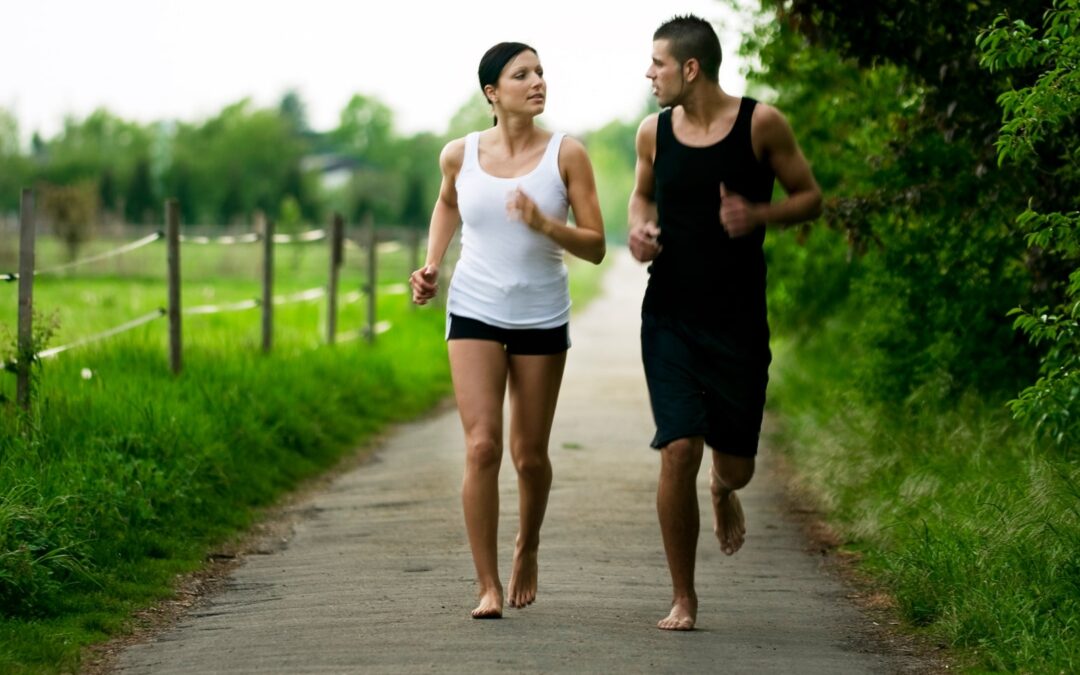Barefoot running is rising in popularity among runners, causing many to question the switch. These runners are hoping barefoot running will provide greater comfort and less pain and wear on the body. Christopher McDougall’s 2009 book Born to Run discusses barefoot running as a move that goes back to natural running. The book attributes many running-related injuries to wearing shoes.
The idea of barefoot running is controversial. The science behind barefoot running is based on an understanding of the musculoskeletal system, as well as the mechanics of running. The evidence from medical experts is not clear, but consider the following points if you are considering natural running:
1. Shoes make us run differently. When we wear shoes, we tend to lengthen our stride and strike further back on the foot. This certain strike on the heel would be painful if you were barefoot. Additionally, those who wear shoes tend to lean forward more. On the other hand, barefoot runners strike at the forefoot or midfoot and run in a more upright position.
2. These differences result in alternative impacts and stresses in areas of the body. Research demonstrates that striking harder on the heel results in an impact that travels upward through a runner’s bones. Alternatively, a lower impact on the forefoot moves through the runner’s muscles and soft tissue.
3. Since most Americans have worn shoes throughout their lives, their bodies have adapted to it. While wearing shoes, we move differently to respond to impact, as well as strengthen and weaken various parts of the body over time. Barefoot runners tend to have stronger feet and calves than those who run with shoes.
4. If you are considering switching to barefoot running, think about the risks in making the change. Though your body is most likely capable of adapting, be sure to not increase the risk of injury. It takes time to adjust your form to barefoot running. Gradually make these changes and listen to your body’s response.
5. No matter whether you choose natural running or running with shoes, your form is key. Improper form contributes the most to running-related injuries.
If you are considering a different approach to running, consult your chiropractor. As an expert, a chiropractor can help you prevent problems and suggest techniques to enhance performance. Call our office today to schedule an appointment.

